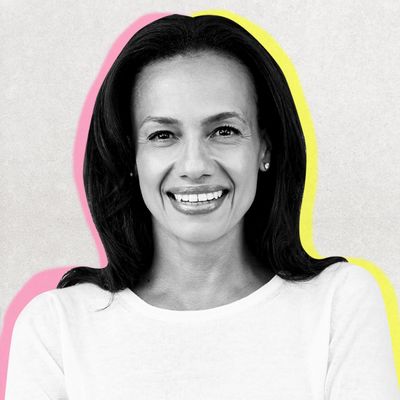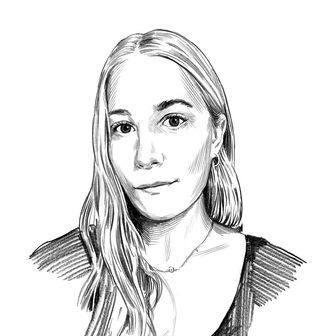
Alexis McGill Johnson became the acting president and CEO of the Planned Parenthood Federation of America and the Planned Parenthood Action Fund in 2019. Before that, she’d served on the Action Fund’s board for a decade, and she also co-founded the Perception Institute, a research group that studies racial bias and discrimination. McGill’s tenure at Planned Parenthood began amid a tumultuous time internally for the organization, after president Leana Wen was asked to step down. At the same time, Planned Parenthood was in the middle of battling multiple state’s attempts to pass restrictive anti-abortion laws, many of which are now winding their way up to the Supreme Court. Anti-choice activists are hoping to use these cases to overturn Roe v. Wade.
Now, some states are using the coronavirus pandemic as an excuse to try to ban abortion altogether, arguing that abortion care is a “nonessential” medical service. So far, lawmakers in Texas, Ohio, Alabama, Iowa, and Oklahoma have attempted to ban abortion services indefinitely, and Planned Parenthood (along with the Center for Reproductive Rights, the ACLU, and the Lawyering project) has been working to challenge the bans. Currently, only the Texas order, which was upheld by a federal court, has taken effect, and Planned Parenthood is scrambling to help women who need abortion care get it out of state.
McGill Johnson lives in New York City with her husband and children. Here’s how she gets it done:
On life at home right now:
I have two daughters, age 10 and 7. With the little bit of news that they’ve heard, they’re nervous, and they need a lot of attention. So all four of us are in a king bed every night. My husband and I are not getting a particularly good night’s sleep. But we’re trying our best to get to a routine, get them up and to their Zoom remote classes by 9 a.m. For me, through breakfast, lunch, and dinner, it’s being on calls in the middle of all of these crazy executive orders. If I can, I love to go for a run or do a hard workout. I don’t do yoga. I can’t turn my brain off, so I actually leave yoga more angry.
On sharing childcare duties with her husband:
My husband has taken on a lot at home during coronavirus. He’s the one who is setting up the Zooms and sitting with the 7-year-old and doing math problems with the fifth grader. We actually had a fundamental shift in our gender roles at home when I first took on this role at Planned Parenthood last summer. A lot of the job is getting on planes. I had been working from home, where I ran my own business, but I was between caregivers for my daughters, so my husband stayed for the month with the girls. When I next saw them, I was so excited waiting for them. I hadn’t been away from them for longer than a few days at this point. When I grabbed them the first thing I thought was, When was the last time you had a bath? And the 7-year-old was like, “Um, Daddy?” It was one of those moments where I had to let go, and just be grateful.
On responding to abortion bans amid the pandemic:
We’re working in real time, through weekends. As you can imagine, when these orders come down, we gotta pull together communications, legal, our policy teams, our affiliates. The lengths that anti-abortion politicians will go to, to decide that a global pandemic is the time to continue to play this political game, is not surprising for us. We have a strong pushback muscle. There were abortion restrictions across the country in 37 states in 2018. This administration has confirmed more than 190 conservative judges. So we’ve been planning for what a world without Roe would look like and how we would have to shore up access — we’re talking about 25 million women who could live in states without access to abortion if Roe v. Wade were overturned. I see COVID-19 as an accelerator of that process. And right now we’re also working on top of worrying. I lost a friend this weekend. I have another friend in the hospital. I think that’s going to be the reality for many of us.
On her mom as inspiration:
As a black woman, my mom wasn’t encouraged to go to college despite her good grades. She became a secretary right out of school, and just put her head down and worked her way up from being an assistant to becoming a vice-president at AT&T. I watched her journey and the complications of seeing her as a strong civil rights and black power advocate, fighting for all of the women in the community around her, and then defaulting to traditional gender roles at home. She had a poem in her office that hangs in my office at home, by Alice Walker, called “Women.” It’s about our ancestors making their way, and the last few lines are: “How they knew what we must know without knowing a page of it themselves.” I center myself on that phrase every day.
On what keeps her motivated:
A few months ago, we submitted an Amicus brief to the Supreme Court for the Louisiana abortion case [June Medical Services v. Russo, which justices are currently scheduled to decide on in late June]. And it’s filled with provider’s stories of what they do every day to ensure access. There are times when the shock of what someone has said or done, how inhumane they are being, really gets to you. It’s heartbreaking to think about a woman getting in her car in Lubbock, Texas and driving to L.A. for an abortion, that’s just madness. I get fired up for justice and freedom. I find a lot of power in being in service.


